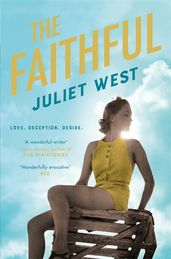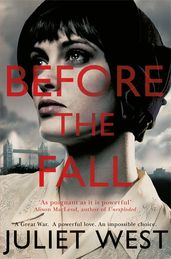Synopsis
A compelling, moving tale of a love affair, set in the East End during World War 1 and inspired by an unforgettable true story.
A great war.
A powerful love.
An impossible choice.
I think the war is everywhere: in the rain, in the river, in the grey air that we breathe. It is a current that runs through all of us. You can't escape the current; either you swim with it, or you go under.
1916. Across the channel, the Great War rages; in London's East End, with her husband away fighting, Hannah Loxwood struggles to hold everything together. But when Hannah takes a job in a café, she discovers a glimpse of freedom away from her needy young children, her spiteful sister and desperately ill father.
While the conflict drags on, Hannah battles with the overwhelming burden of 'duty'. She has sacrificed so much for a husband who left her behind, a husband who may never come home. Then, when she meets Daniel - thoughtful, intelligent, quietly captivating - Hannah finds herself faced with the most dangerous of temptations . . .
As the war grips tighter and bombs fall down upon the streets, the stakes for the couple grow ever higher. Soon Hannah and Daniel will realise just how precarious their happiness is, as their destiny rushes towards them . . .
Beautifully wrought, utterly compelling and with a twist that will leave you breathless, Before The Fall, inspired by a true story, hurls you into a London torn apart by the First World War and paints a vivid and haunting portrait of one woman's struggle.
Details
Reviews
Poignant . . . arresting.
As poignant as it is powerful.
Evocative and powerful.
This sad, beautiful love story is based on real events.



